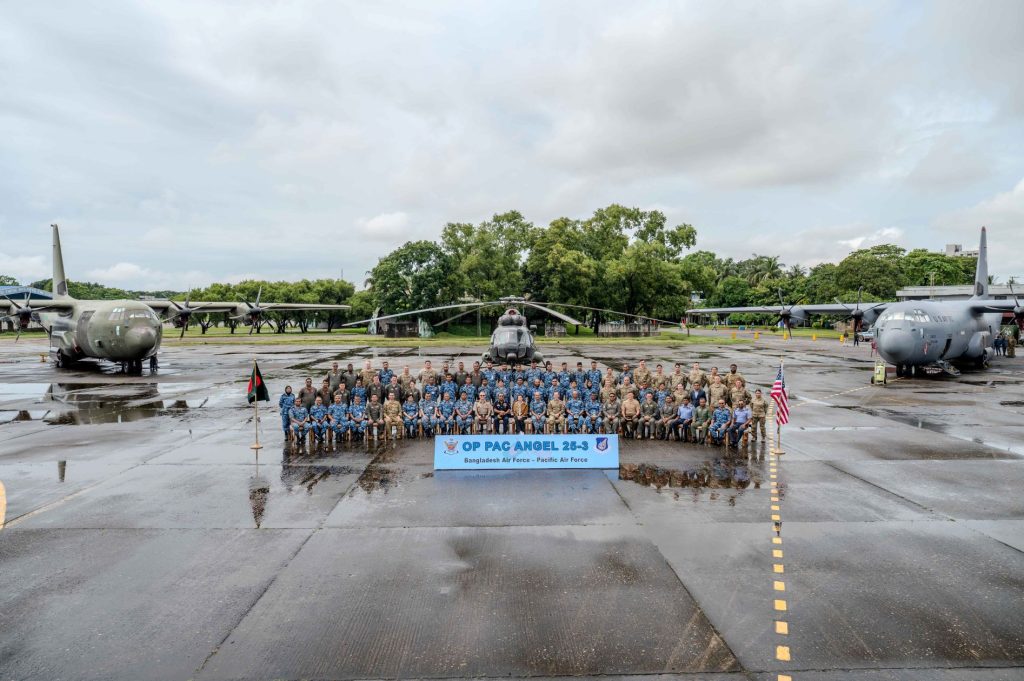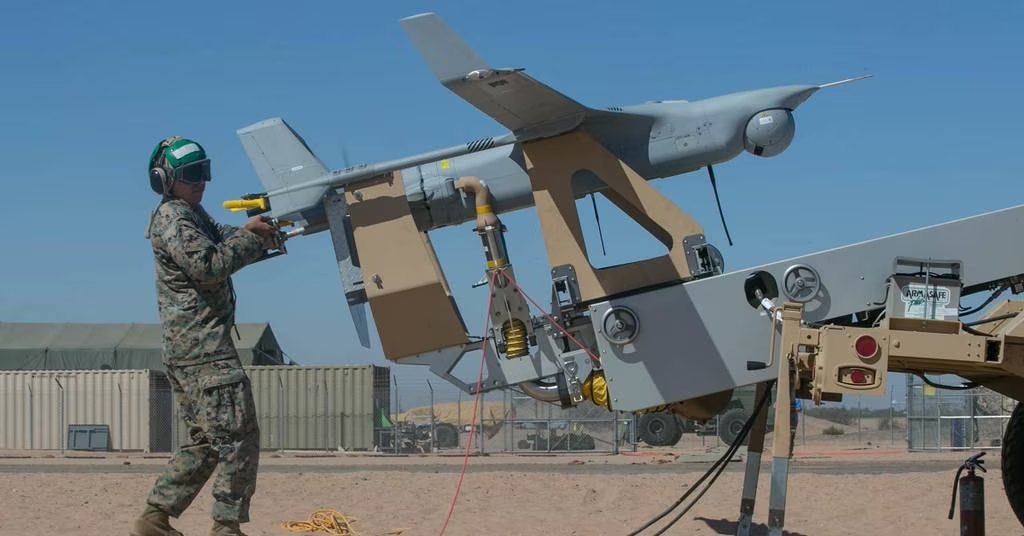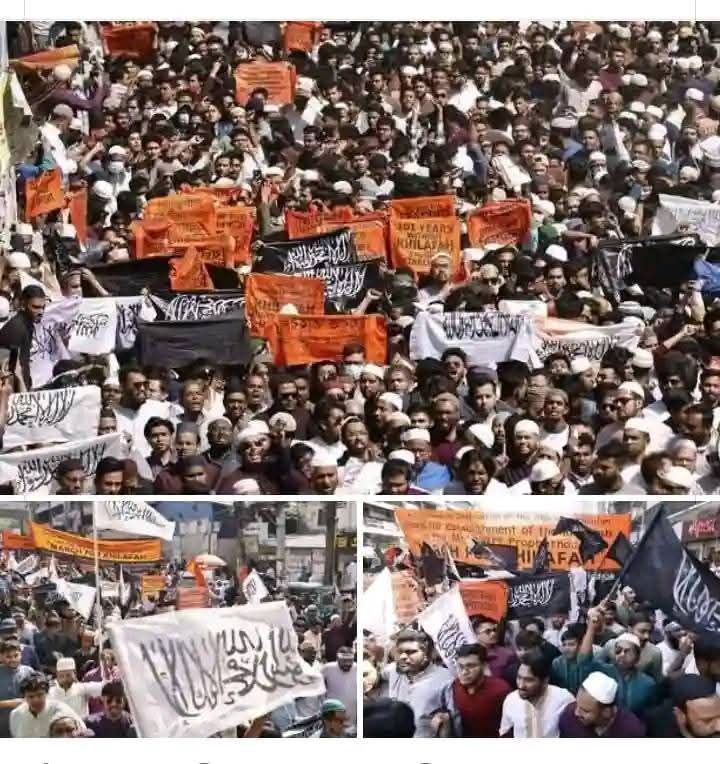Senior Bangladeshi journalist Salah Uddin Shoaib Choudhury has revealed that the US plans to use Bangladesh as a staging ground for invading Myanmar with the help of the Arakan Army insurgents by December. The move aims to expel Chinese influence from Myanmar and establish a Christian state in the region, spanning parts of northeastern India, Arakan (Rakhine State), and Chittagong Hill Tracts (CHT).
This would render Bangladesh landlocked, depriving it of sea access in the Bay of Bengal, which would severely damage its sovereignty and regional standing.
Award-winning journalist Choudhury, also the editor of the Weekly Blitz, explains the significance of the covert presence of US troops in Bangladesh, particularly in the CHT near the India-Bangladesh-Myanmar border, and notably in tea garden areas of Sylhet close to northeastern India.
Suspicion grows as Yunus takes BNP, Jamaat, NCP leaders to New York
October Revolt: Jamaat-ISI final actions to assassinate General Waker, arrest dozens
Jihadists blueprint to sabotage Durga Puja in Bangladesh and India
“They will attack Myanmar anytime soon, and they will drive away China’s establishments in Myanmar, and Myanmar will become the next US colony,” he said.
Choudhury said that the US military activities were largely unknown until a US special forces member was found dead at a Dhaka hotel, with the US embassy quickly removing his body and confiscating sensitive equipment, including maps and satellite devices.
He made the comments in a podcast with author and columnist Arun Anand on his “The Nationalist View” show on Sunday, while discussing Bangladesh and regional geopolitics.
The discussion focuses on deep insights into Bangladesh’s current political turmoil, US involvement, regional geopolitics, and the authoritarian transformation under Yunus, who recently said that the interests of the US and Bangladesh in South Asia were the same.
US-backed drone facility set to launch in Bangladesh soon
How the US is instigating a civil war to take hold of Bangladesh
How Yunus is implementing UN plot to establish a Christian state
Choudhury said the US troop deployment is part of a broader US strategy linked to its geopolitical ambitions in South Asia. The US deep state allegedly planted Muhammad Yunus to maintain control over Bangladesh for at least five years, with intentions to reshape the country akin to Iraq or Afghanistan under US influence.

However, Yunus’s regime has minimal popular support (only about 0.02%), leading to pressures on Yunus to hold elections by February next year—a deadline Yunus is unlikely to meet.
China’s Position and Regional Security Dynamics
Choudhury said that China is in the hot soup because of its diplomatic disaster due to the initial support for Yunus, mistaking him and his Islamist allies as anti-India partners.
However, Yunus was a US deep state plant, putting China in a precarious position. China’s strategic interests in Myanmar and Bangladesh are threatened by US-backed attempts to destabilise the region.
The Bangladesh military and security establishment’s stance is not explicitly detailed, but the implication is a tense situation with multiple external forces vying for influence, he said.
Choudhury also discussed the evolving US-India relationship, highlighting President Donald Trump’s shifting stance. Initially critical of India, Trump is now seeking rapprochement with Prime Minister Narendra Modi, recognising India’s geopolitical and economic importance, especially as a counterbalance to China and Russia. This trilateral dynamic involving India, China, and Russia complicates US ambitions in South Asia, particularly regarding Myanmar and Bangladesh.

He said: “Trump realises that India is a country of 140 crore people. It’s a massive market. It’s not only a market, but India is also the supplier of so many essential components of the US industries, and it is also almost the lifeline of Silicon Valley.
“So now…Trump has come back almost begging to normalise relations with Narendra Modi, and it will take place very soon. I think within the next three or four days, Trump is going to have a long conversation with Narendra Modi, and we should not be surprised if Trump suddenly appears in India physically expanding his hands of friendship because without India, Trump is isolated.”
US Strategy in the Middle East and Regime Change in Saudi Arabia
The conversation broadened to the Middle East, where a new defense agreement between Pakistan and Saudi Arabia is seen as a US manoeuvre to destabilise the region further. Pakistan’s alliance with China and the presence of a significant Shia population make it vulnerable to attacks from Iranian-backed Houthis and internal sectarian strife. This could trigger retaliatory violence, potentially destabilising both Pakistan and Saudi Arabia, Choudhury said.

This instability is part of a wider US plan to incite regime change in Saudi Arabia, undermining the monarchy and pushing for democratic reforms aligned with US interests.
Media Suppression and Authoritarianism under Muhammad Yunus
Choudhury emphasised the severe crackdown on the Bangladeshi media under Yunus’s regime, contrasting it with global perceptions. While Turkish President Erdogan was once widely criticised for jailing journalists, Yunus has surpassed those actions by imprisoning hundreds of journalists under anti-terrorism laws—an unprecedented use of terrorism charges against the press.
International organisations that typically defend press freedom remain silent, as Yunus’s repression aligns with US deep state policies, he said. This mirrors US strategies in other conflict zones where free speech is curtailed during invasions or interventions, such as Ukraine, Iraq, Libya, and Egypt.
“Journalists facing anti-terrorism charges are very unique in the world, and because whatever he is doing, he is doing as per the prescription and desire of the US deep state. So, you will see that Committee to Protect Journalists, Reporters Without Borders, and all other global so-called journalist rights groups are absolutely silent. Even Human Rights Watch is not uttering a word. This is how Yunus is advancing with the policy of the US deep state.”
Yunus ally Hefazat protests appointing music teachers in primary schools
What does Mamunul Haque’s Afghanistan visit mean for Bangladesh?
Choudhury explained that wherever the US deep state makes an invasion attempt, there is the silencing of the media and free speech. “Even in Ukraine, we know they don’t allow free speech. They don’t allow freedom of expression in Iraq, in Libya, in Egypt, in Tunisia, anywhere. So, Bangladesh has been the latest chapter of the US authority with the repression of the press.”
Rise of Islamist Militancy and Ansar al-Islam
The interview highlights the empowerment of Islamist militant groups like Ansar al-Islam, linked to al-Qaeda, under Yunus’s government. The regime released Jasimuddin Rahmani, a top militant leader, who openly boasts about orchestrating the killings of secular bloggers, like American writer Avijit Roy, and threats against India.
This open admission of jihadist terror activities and the regime’s tacit support mark Bangladesh’s descent into chaos and extremism. “So, this is a very dangerous situation. Even such things we never found even in Afghanistan that the jihadis are publicly admitting their crimes and continuing.”

Yunus, previously regarded as a Nobel Peace Prize laureate for microcredit, has transformed into a dictator suppressing freedoms and allowing militant Islamist groups to flourish, Choudhury said, adding: “Actually, the Nobel Peace Prize was given to him due to the persuasion and influence of Bill Clinton.”
Political Alliances and Election Prospects
The regime’s reliance on extremist Islamist parties like Jamaat-e-Islami and other radical groups is underscored. Despite their small electoral base (10-12%), Yunus depends heavily on these forces to maintain power amid dwindling popular support, Choudhury said.
The upcoming February 2026 elections are unlikely to occur legitimately, as Yunus is reportedly sabotaging democratic processes. His visit to the UN General Assembly will include leaders from opposition and Islamist parties, signalling his desperation and recognition that his support is collapsing both domestically and internationally.
Choudhury said that Yunus is looking for a safe exit. “Yunus has realised that in Bangladesh, he has no support. People want him to go immediately. He also knows that in the US and the West, his support is finished. He is considered a dead horse.”
He said that the situation is extremely volatile, with external actors like Pakistan poised to exploit instability and cause further damage to Bangladesh and neighbouring countries, like India, Myanmar and China.
“We should remember that Yunus has at least one very evil force, and it is Pakistan. So, they (Pakistanis) are very poisonous snakes. They will try to cause optimum damage to my country, Bangladesh, and will also try to cause damage to our friendly neighbours.”
Western World’s Perspective and Lessons from History
Choudhury criticised the US deep state for repeating historical mistakes made in Vietnam and Afghanistan, ignoring past lessons and blindly pushing interventionist agendas that backfire.
He recalled Hillary Clinton’s statement about “snakes in your backyard” to illustrate how regional instability in Bangladesh may spill beyond its borders, threatening wider South Asia. Despite these risks, Western media and governments largely ignore the repression and Islamist radicalisation occurring in Bangladesh.
India, having played a crucial role in Bangladesh’s creation, is aware of these developments and is taking precautionary measures to protect its national security. India’s historical and cultural ties with Bangladesh’s Bengali population further compel it to act in the region’s interest, he added.
Regional Implications and Future Outlook
The discussion concludes on a cautiously optimistic note, emphasising solidarity among Bangladesh, India, and regional actors opposed to US hegemony. Choudhury said that the nefarious plots by the US and Pakistan to destabilise Bangladesh will ultimately fail, as they have in other countries.
He added that the current period is extremely sensitive, with the impending fall of Yunus’s regime and potential US attempts to reshape South Asia through military and political means. The regional balance of power involving India, China, Russia, and Bangladesh will determine the future trajectory of South Asia’s stability.
“I think together with India, the Bengalis and many other nations in this part of the world who are against US hegemony and who are against the US’ notorious policies will stand together. We are standing together. At the end of the day, as Pakistan and US plots were foiled in Afghanistan and many other countries in the world, all of their evil attempts will be foiled in Bangladesh,” Choudhury said.
Key Insights:
– The US has a covert military presence in Bangladesh, linked to broader plans to destabilise Myanmar and counter Chinese influence.
– Muhammad Yunus’s regime is authoritarian, suppressing free media and empowering Islamist militants.
– China faces a diplomatic setback due to miscalculations in supporting Yunus.
– India is emerging as a crucial regional power, recalibrating relations with the US and countering destabilising forces.
– Pakistan’s alliance with Saudi Arabia and China may ignite sectarian and geopolitical conflicts in the Middle East and South Asia.
– Western media and governments largely ignore the authoritarian crackdown and Islamist terrorism in Bangladesh.
– The February 2026 elections in Bangladesh are highly unlikely to be free or fair.
– Regional cooperation among India, Bangladesh, and other neighbours is key to resisting US and Pakistani destabilisation efforts.